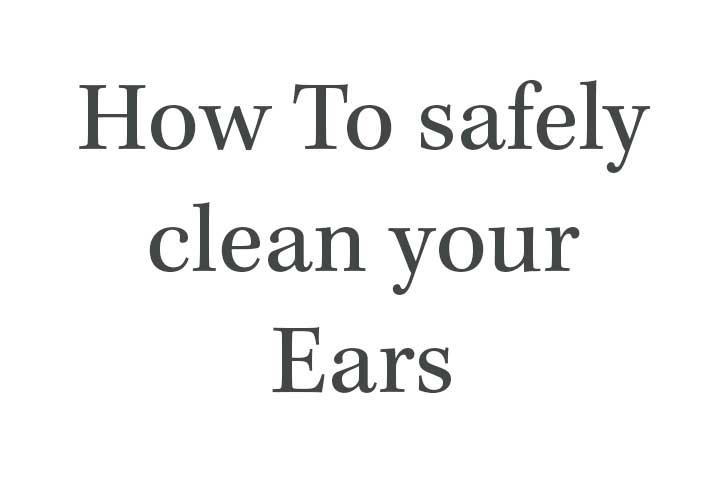The Importance of Hearing Tests
Introduction
Hearing is one of the most vital senses we rely on to engage with the world around us. Whether it’s enjoying a conversation with a loved one, listening to your favorite music, or hearing the sounds of nature, good hearing health is essential for day-to-day life. However, many people tend to overlook their hearing until problems arise, often ignoring subtle signs that their hearing may be deteriorating. Regular hearing tests are crucial in identifying potential issues early and preserving your hearing. In this article, we’ll discuss the importance of hearing tests, how they work, and why they should be an essential part of your healthcare routine.
Why Hearing Tests Are Important
- Early Detection of Hearing Loss
One of the primary reasons hearing tests are so important is that hearing loss often develops gradually and can be difficult to detect on your own. Many individuals may not notice their hearing decline until it has become more pronounced, which can lead to delayed treatment and missed opportunities for effective intervention. A hearing test can detect hearing loss at the earliest stages, even before symptoms are obvious. This early detection allows for timely treatment, preventing further damage to your hearing. - Preventing Social Isolation
Hearing loss can cause significant social and emotional challenges. As hearing deteriorates, many individuals may avoid social situations due to the difficulty of following conversations or the embarrassment of not hearing clearly. This can lead to feelings of isolation, frustration, and even depression. Regular hearing tests ensure that any changes in hearing are addressed promptly, reducing the risk of social withdrawal and helping individuals stay connected with their family, friends, and community. - Improved Quality of Life
Untreated hearing loss can affect various aspects of life, including work, relationships, and personal safety. For instance, it may become more difficult to hear important phone calls, communicate with colleagues or loved ones, or respond to important auditory cues, such as alarms or car horns. Hearing aids or other assistive technologies can help restore hearing function and improve overall quality of life. A hearing test provides the necessary information to determine whether you could benefit from these solutions, helping you live a more fulfilling and engaged life. - Preventing Cognitive Decline
Research has shown that untreated hearing loss is linked to cognitive decline and an increased risk of dementia. The connection between hearing loss and cognitive function is still being studied, but it is believed that the brain has to work harder to process sound when hearing is impaired, which could lead to a decline in memory and cognitive abilities. By addressing hearing loss early with a professional hearing test and appropriate intervention, you may reduce your risk of cognitive decline and maintain better brain health as you age. - Monitoring Changes in Hearing
Regular hearing tests are crucial for monitoring changes in hearing over time. Just like regular vision tests, hearing tests help track the progress of any hearing loss or deterioration. If you’ve already been diagnosed with hearing loss, regular tests allow your audiologist to adjust treatment plans, such as fine-tuning hearing aids or exploring new treatment options as needed. Tracking changes ensures you’re always using the best possible approach to maintain and improve your hearing.
When Should You Get a Hearing Test?
While hearing tests are beneficial for everyone, some groups of people may be at higher risk for hearing loss and should get tested more regularly. Here are some situations where you should consider getting a hearing test:
- If You Are Over 50:
Hearing loss becomes more common as we age. According to the National Institute on Deafness and Other Communication Disorders (NIDCD), nearly one in three people between the ages of 65 and 74 experience some degree of hearing loss. For individuals over 75, the percentage rises to nearly half. Regular hearing tests become especially important after the age of 50 to catch any age-related hearing changes. - If You’ve Been Exposed to Loud Noises:
Prolonged exposure to loud noises, such as working in construction, attending concerts, or using loud machinery, can cause noise-induced hearing loss. This type of hearing loss is permanent but can be prevented with proper hearing protection. If you’ve been exposed to loud noises or work in a noisy environment, it’s a good idea to have a hearing test every year to monitor for any damage. - If You’re Experiencing Signs of Hearing Loss:
If you’ve noticed any signs of hearing loss, such as difficulty understanding speech, frequently asking people to repeat themselves, or turning up the volume on the TV or radio, it’s time to get a hearing test. Early intervention can help manage hearing loss and prevent further deterioration. - If You Have a Family History of Hearing Loss:
Hearing loss can be genetic, and if there’s a history of hearing loss in your family, you may be at an increased risk. Regular hearing tests are recommended to monitor your hearing and catch any early signs of genetic hearing loss. - If You Experience Tinnitus (Ringing in the Ears):
Tinnitus, or ringing in the ears, is a common symptom of hearing loss. If you experience persistent ringing, buzzing, or hissing sounds in your ears, it could indicate hearing loss, and you should seek a hearing test to understand the cause and address the issue.
What to Expect During a Hearing Test
Hearing tests are simple, non-invasive procedures conducted by an audiologist. Here’s what you can expect during a typical hearing evaluation:
- A Detailed Medical History:
The audiologist will begin by asking about your medical history, including any ear problems, previous surgeries, or family history of hearing loss. They may also inquire about your exposure to loud noises, lifestyle, and any symptoms you’re experiencing. - Visual Inspection of the Ears:
The audiologist will likely use an otoscope to examine your ears and check for any blockages, infections, or other issues that could be affecting your hearing. - Pure Tone Audiometry:
The most common hearing test involves listening to a series of tones through headphones or speakers. The audiologist will play different sounds at various pitches and volumes, and you’ll be asked to signal when you can hear them. This helps determine the softest sounds you can hear and which frequencies are most affected. - Speech Audiometry:
In this test, the audiologist will play words or phrases through headphones to see how well you can understand speech at different volumes. This test helps assess how hearing loss affects your ability to understand spoken words. - Other Tests as Needed:
Depending on your symptoms and medical history, additional tests may be conducted, such as tympanometry (to check the middle ear’s function) or otoacoustic emissions (OAE) testing (to evaluate the inner ear).
Conclusion
Regular hearing tests are essential for maintaining healthy hearing and addressing potential issues before they worsen. By catching hearing loss early, you can take steps to protect your hearing, improve your quality of life, and prevent further complications. If you haven’t had a hearing test recently or if you’re noticing any signs of hearing loss, don’t wait—schedule an appointment with an audiologist today. Early intervention is key to preserving your hearing and enjoying a better quality of life for years to come.




